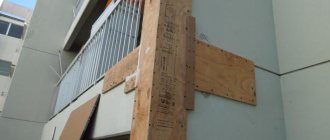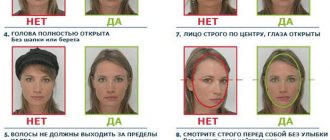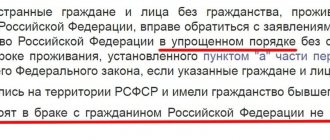On September 3, a draft Federal Law on increasing the powers of state housing supervision bodies .
The Government of the Russian Federation, and it is this department that developed the bill, proposes to expand the competence of the State Housing Inspectorate and delegate to them the consideration of administrative cases regarding the failure of the RSO to fulfill the obligation to equip apartment buildings and residential buildings with metering devices .
It is expected that bill N 1165258-6 will help the State Housing Inspectorate bodies more carefully and effectively monitor the equipment of metering devices in apartment buildings and residential buildings. Changes are planned to be made to Articles 23.48 and 23.55 of the Code of Administrative Offenses of the Russian Federation.
Here you can read how to place information about PU in the GIS Housing and Communal Services
Balance of interests of citizens and management companies.
On the one hand, filing a complaint with the Housing Property Management about violation of the rules of maintenance and repair of the house by the Criminal Code is the right of every owner of the premises in the apartment building, through the implementation of which an attempt is made to influence the Criminal Code in order to improve the quality of the work it performs (services provided), the timely implementation of all necessary technical procedures, etc. On the other hand, for the most part, property owners do not think about what bringing the management company to administrative responsibility for each appeal will actually turn out for them.
According to statistics from management organizations, the fine for one offense is two to three times higher than the annual fee for maintenance and repairs per apartment. Thus, by regularly imposing fines, the opposite effect can be achieved – reducing the quality of home service. In any case, this is what professional participants in the housing and communal services market say: they say that the money collected from the owners will not be used to repair premises, but to pay fines. One can argue with this statement, but the fact is a fact: if fines increase, and the quality of work and services decreases, it means that owners should use other levers of influence than wait for help from the State Housing Property Inspectorate. In addition, everyone is well aware that our administrative machine has many vices, and the most common of them are bureaucracy and formalism. Inspections for the sake of inspections, statistics and the achievement of other goals that are in no way related to the actual suppression of unlawful actions of business entities will not surprise anyone. There is one more nuance. Inaction of owners and failure to comply with RSO technical regulations can also cause the unsatisfactory condition of the common property of the owners of premises in apartment buildings, but it can be extremely difficult and sometimes impossible to prove this. In turn, the procedure for filing recourse claims against RSO is a thankless and expensive task.
In such conditions (with mass inspections and growing dissatisfaction among owners), it is extremely important for the management company to achieve a reduction in the amount of fines in order to free up funds for solving other problems within the framework of the management of apartment buildings. To do this, you need to clearly understand the scope of powers of the State Housing Property Inspectorate officials and the procedure for them to conduct unscheduled inspections, as well as develop a procedure for interaction with the State Housing Property Inspectorate.
Proper maintenance of common property.
According to clause 10 of the Rules for the maintenance of common property, common property must be maintained in accordance with the requirements of the legislation of the Russian Federation (including on the sanitary and epidemiological welfare of the population and technical regulation) in a condition that ensures compliance with certain characteristics and requirements (both aesthetic and technical) to the architectural appearance of the house, its safety, accessibility of premises for use, constant readiness of utilities, etc.
If the owners have chosen such a method of managing apartment buildings as management by a management organization or direct management, the proper maintenance of common property is ensured by the owners of the premises by concluding an appropriate agreement (clause 16 of the Rules for the maintenance of common property). By the way, the maintenance of common property implies an impressive list of works, in particular current and major repairs of apartment buildings (clause 11 of the Rules for the maintenance of common property). Thus, the proper maintenance of common property is ensured by its owners, and management organizations are responsible to them for violation of their contractual obligations and are responsible for the proper maintenance of common property in accordance with the legislation of the Russian Federation (clause 42 of the Rules for the maintenance of common property).
Responsibility for improper maintenance of common property.
Inadequate maintenance of the common property of the owners of premises in apartment buildings is a consequence of non-compliance with the Criminal Code, including the Rules for the maintenance of common property. This type of offense in accordance with Art. 7.22 of the Code of Administrative Offenses of the Russian Federation is a reason for bringing an economic entity to administrative liability. For officials, the fine ranges from 4,000 to 5,000 rubles; for legal entities – from 40,000 to 50,000 rubles.
Next, we will outline the key points about who is the subject of the offense under this article of the Code of Administrative Offenses of the Russian Federation and in what cases the management organization cannot and should not be held administratively liable on the grounds listed therein.
When conducting inspections, State Housing Property officials, while recording the violations found, do not find out the reasons why they arose. At this stage, the management organization must clearly understand whether it is to blame for the fact that the maintenance and repair of the apartment building is carried out improperly.
According to the general rules (we will outline the key points), the management agreement must, among other things, indicate: a list of services and works for the maintenance and repair of common property in an apartment building, the procedure for changing such a list, the procedure for determining the price of the contract and the amount of payment for the maintenance and repair of residential premises. In addition, clause 17 of the Rules for the maintenance of common property obliges the owners of premises to approve at a general meeting a list of services and works, the conditions for their provision and implementation, as well as the amount of their financing. At the same time, on the pages of the magazine, we have repeatedly warned the management company that the failure to indicate in the list of works and services approved by the general meeting of owners, any work and services, the need to perform (provide) which follows directly from regulations in the field of maintenance and operation of housing fund does not at all exempt the management company from their implementation (provision). This conclusion is confirmed by Resolution of the Presidium of the Supreme Arbitration Court of the Russian Federation dated September 29, 2010 No. 6464/10, the interpretation of the legal norms of which is generally binding and is subject to application when courts consider similar cases.
In particular, this resolution states that all current, urgent, mandatory seasonal work and services are considered provided for in the contract by virtue of the standards for maintaining a house as an object and must be carried out by management companies, regardless of whether the corresponding specific actions are mentioned in the contract and whether there is a the issue of the necessity of their implementation is a special decision of the general meeting of owners of premises in the house. Management organizations act in these relations as specialized commercial organizations that manage apartment buildings as their main business activity. Therefore, determining in the contract the proper amount of payment for the foreseeable under normal conditions, normally necessary maintenance and current repairs of a residential building, taking into account its natural wear and tear, is their business risk. If the performance of urgent work and services (both routine and capital in nature) is caused by circumstances that the management company could not reasonably foresee and prevent with the usual degree of care and prudence and for the occurrence of which it is not responsible, then such expenses must be additionally compensated to it owners of premises in the house.
In this regard, the Criminal Code needs to apply with great caution the recommendations of the Ministry of Regional Development of Russia, contained in Letter No. 26084-SK/14 dated October 14, 2008, regarding what if, in order to include in the management agreement specific works and services for the maintenance and repair of common property in MKD requires a decision from the general meeting of premises owners; the absence of such decisions means that the management company:
• does not have the right to perform work and services unauthorized by the owners;
• should not be responsible for the consequences of failure to perform such work and services;
• cannot be brought to administrative responsibility for failure to comply with them, and the bodies of the Civil Housing Inspectorate do not have the right to issue instructions on their implementation.
By the way, an analysis of judicial practice shows that the courts, when considering the category of cases that interest us, do not take into account the references of the Criminal Code to the content of the Letter of the Ministry of Regional Development of Russia dated October 14, 2008 No. 26084-SK/14, since it, by virtue of Part 1 of Art. 13 of the Arbitration Procedure Code of the Russian Federation is not included in the range of normative legal acts used in the consideration of cases.
Here we should separately add a few words about the obligation of the management company to carry out capital repair work. Major repairs of common property, in accordance with clause 21 of the Rules for the maintenance of common property, are carried out by decision of the general meeting of premises owners to eliminate physical wear or destruction, maintain and restore serviceability and performance indicators, in case of violation (danger of violation) of the established maximum permissible reliability characteristics and safety, as well as, if necessary, replacement of relevant elements of common property (including enclosing load-bearing structures of an apartment building, elevators and other equipment). According to clause 37 of the Rules for the maintenance of common property, when the general meeting of premises owners makes a decision to pay the costs of major repairs of an apartment building in accordance with Art. 158 of the Housing Code of the Russian Federation, the amount of the fee for carrying out major repairs is determined taking into account the proposals of the management organization on the start date of major repairs, the required amount of work, the cost of materials, the procedure for financing repairs, the timing of reimbursement of expenses and other proposals related to the conditions for carrying out major repairs.
Firstly, the management organization must clearly understand the difference between current and major repairs. Current repairs of common property, in accordance with clause 18 of the Rules for the maintenance of common property, are carried out by decision of the general meeting of premises owners to prevent premature wear and tear and maintain operational performance and performance, eliminate damage and malfunctions of common property or its individual elements (without replacing the enclosing load-bearing structures, elevators ). If inspectors identify violations of the technical condition of a residential building, which can be eliminated during ongoing repairs financed by monthly payments from the owners, the management company will be held accountable, and the arguments will be that the organization did not receive instructions from the owners to carry out capital work and did not agree on the procedure their payments will be rejected by both inspectors and judges (see resolutions of the FAS UO dated December 28, 2010 in case No. A50-13516/2010, FAS VVO dated September 8, 2010 in case No. A31-2421/2010, FAS PO dated May 27. 2010 in case No. A65-31513/2009, FAS SZO dated 03.03.2010 in case No. A66-9630/2009).
According to clause 3.8 of the Methodology for determining the cost of construction products on the territory of the Russian Federation, approved by Decree of the State Construction Committee of Russia dated 03/05/2004 No. 15/1, current (preventive) repairs consist of the systematic and timely implementation of work to prevent wear and tear of structures, finishing, engineering equipment, as well as work to eliminate minor damage and malfunctions. Major repairs of buildings and structures should include work on the restoration or replacement of individual parts of buildings (structures) or entire structures, parts and engineering equipment due to their physical wear and tear with more durable and economical ones that improve their performance. Work on major repairs of external utilities and improvement facilities includes repairs of water supply, sewerage, heat and gas and electricity networks, landscaping of courtyard areas, repair of paths, driveways and sidewalks, etc.
Please note that Federal Law No. 215-FZ dated July 18, 2011 amended the Town Planning Code, including introducing the concept of major repairs of capital construction projects. Thus, capital repairs include the replacement and (or) restoration of building structures of capital construction projects or elements of such structures, with the exception of load-bearing building structures, replacement and (or) restoration of engineering support systems and networks of engineering support for capital construction projects or their elements, as well as the replacement of individual elements of load-bearing building structures with similar or other elements that improve the performance of such structures and (or) restoration of these elements (clause 14.2 of Article 1 of the Town Planning Code of the Russian Federation). In addition, Federal Law No. 191-FZ dated December 29, 2004 “On the implementation of the Town Planning Code of the Russian Federation” was supplemented by Art. 10.4, which legalizes the list of construction works that, by Federal Law of July 21, 2007 No. 185-FZ “On the Fund for Assistance to the Reform of Housing and Communal Services” (hereinafter referred to as Law No. 185-FZ) are classified as major repairs of apartment buildings. So, from the text of Art. 10.4 it follows that in order to implement regional targeted programs for the capital repair of apartment buildings, financed from the fund, the law may establish specifics for classifying types of work as major repairs of apartment buildings. Today, according to paragraph 3 of Art. 15 of Law No. 185-FZ the following are included in major repairs:
• repair of in-house engineering systems of electricity, heat, gas, water supply, and wastewater disposal;
• repair or replacement of elevator equipment deemed unsuitable for operation, and, if necessary, repair of elevator shafts;
• roof repair;
• repair of basements belonging to common property in apartment buildings;
• insulation and repair of facades;
• installation of collective (common house) meters for resource consumption and control units (heat energy, hot and cold water, electricity, gas);
• repair of multi-unit building foundations, including those on pile foundations, located in the Far North and equivalent areas.
Officials of the management company, understanding that in relation to specific apartment buildings there is already a ripened need for capital repairs and that without the decision of the owners the organization formally cannot begin to carry out the relevant work (and without agreeing on the procedure for financing the capital repairs of the management company, it is not interested in carrying it out), should initiate organizing a general meeting of owners with the appropriate agenda. In the event that the management company technically justifies the need to carry out capital work in the apartment building, and the owners nevertheless refuse to make a positive decision on this issue, the management organization will have something to justify itself to inspectors and judges. As a general rule, the management company will be held liable for improper fulfillment of its obligations regarding the maintenance and repair of apartment buildings only if there is fault (Article 401 of the Civil Code of the Russian Federation). Since the management organization must prove the absence of its guilt in failure to carry out capital works on its own, all technical documentation confirming the need for major repairs, evidence of familiarization of the owners with its contents and the latter’s refusal to carry out major repairs of the house must be collected.
Taking into account the above, the conclusion arises that the Criminal Code, in order to minimize the costs of fines in the State Housing Property Inspectorate, should study in detail the terms of the management agreement for apartment buildings and the procedure for collecting evidence of the conscious refusal of the owners of premises in apartment buildings to carry out certain works.
What does the State Housing Inspectorate (GZHI) do?
Violations in the field of construction and housing and communal services can have serious consequences, including leading to casualties among residents and other citizens. To prevent this from happening, the construction and maintenance of residential buildings is supervised and controlled by the GZHI - this is the state housing inspection.
- Conducts inspections of apartment buildings and other houses that make up the housing stock to check their energy efficiency;
- Establish or assign a class to this efficiency of MKD;
- Conducts systematic monitoring of compliance with requirements by authorities and business entities, as well as individuals;
- Check the condition of apartment buildings in the region of responsibility;
- Organize the reception and recording of statutory documents of TSN, HOA, housing cooperative;
- Maintains registers of special accounts, unscrupulous management companies, issued licenses;
- Informs local authorities, as well as relevant regional operators, about those apartment complexes and private households that have not decided on the method of forming a fund, the funds of which are allocated for major repairs;
- Prepares statistics in approved forms;
- Places orders for goods and services for the needs of GZHI in accordance with the regulations established by current legislation;
- Conducts certification of experts who are involved in control activities carried out within the framework of the legislation on the protection of the rights of business entities (No. 294-FZ);
- Takes part in the development of legislative initiatives in the field of operation of the housing stock and the provision of public services;
- Independently prepares drafts of such legislative acts and submits them to the regional government and regional governor.
A different position in the dispute was taken by the famous lawyer Dmitry Gordeev, a member of the Expert Council of the State Duma Committee on Housing Policy and Housing and Public Utilities, and a leading legal adviser in the Urban Economy department of the Institute of Urban Economics Foundation. During the discussion, he justified the right of the State Housing Property Inspectorate in this situation to refuse the MA to make changes to the register of licenses.
- compliance of the package of documents with the requirements of Order No. 938/pr;
- the reliability of the information contained in the documents;
- absence of contradictions between the information in the documents and the information that is already in the register;
- compliance by the licensee with the requirements for disclosure of information in accordance with Part 2 of Art. 198 Housing Code of the Russian Federation;
- absence of a legal dispute regarding the management of apartment buildings.
You may like => Is a Person Who Voluntarily Left the Chernobyl Zone a Chernobyl Survivor and How Many Years Will He Retire?
Federal Law No. 485-FZ of December 31, 2017 amended the RF LC, according to which the following version of Part 7 of Article 162 of the RF LC came into force on January 11, 2018: “7. The management organization is obliged to begin executing the management agreement for an apartment building from the date of making changes to the register of licenses of a constituent entity of the Russian Federation in connection with the conclusion of a management agreement for such a building.”
At the same time, making changes to the register of licenses is possible only “from the first day of the calendar month following the date specified in the relevant decision, but not earlier than the period specified in the apartment building management agreement and from which the licensee begins activities to manage the specified building.”
The insignificance of the violation.
The only way not to pay a fine imposed on a legal basis and proof of the fact of committing an offense is to appeal on its insignificance. There are enough examples in judicial practice when decisions on bringing to administrative liability issued to the Criminal Code are canceled due to insignificance (provided that the organization has taken all measures to eliminate the violation committed) (see the resolutions of the Federal Antimonopoly Service dated December 8, 2010 in case No. A12 -12164/2010, FAS North Kazakhstan region dated December 6, 2010 in case No. A32-11549/2010-11/220-94AZH, FAS VVO dated November 10, 2010 in case No. A28-2546/2010, FAS SZO dated August 9, 2010 in case No. A56-6562/2009).
Note: in accordance with Art. 2.9 of the Code of Administrative Offenses of the Russian Federation, if the administrative offense committed is of minor importance, the judge, body, official authorized to resolve the case of an administrative offense may release the offender from administrative liability and limit himself to an oral remark.
A minor offense occurs in the absence of a significant threat to protected social relations.
In paragraph 18 of the Resolution of the Plenum of the Supreme Arbitration Court of the Russian Federation dated June 2, 2004 No. 10, it is explained that when qualifying an offense as minor, it is necessary to proceed from an assessment of the specific circumstances of its commission. Thus, in order to avoid paying a fine, the Criminal Code may try to appeal the relevant decision of the Civil Housing Inspectorate in court, indicating that the violation is insignificant (if, of course, it really is such).
Regulations for interaction with State Housing Property Committee
We offer an approximate algorithm of actions, developed taking into account the provisions of the Federal Law of December 26, 2008 No. 294-FZ “On the protection of the rights of legal entities and individual entrepreneurs in the exercise of state control (supervision) and municipal control” (hereinafter referred to as Law No. 294-FZ), which will help the Criminal Code to quickly determine whether employees of the Civil Housing Inspectorate are not exceeding their powers when conducting an unscheduled inspection based on citizens’ appeals. Having information about violations of the inspection procedure, the management company will be able to quickly prepare to protect its interests in terms of minimizing the costs of paying fines.
Licensing control in relation to the management organization
Unscheduled inspection of the licensee (management organization)
in connection with the receipt of appeals, statements from citizens, individual entrepreneurs, legal entities, information from state authorities, local governments, and the media about facts of violations by the licensee of licensing requirements to the State Housing Inspectorate, it
is carried out without coordination with the prosecutor’s office and without prior notification to the licensee about an unscheduled checks.
Source.
Housing Code of the Russian Federation;
Code of the Russian Federation on Administrative Offenses; Regulations on licensing of entrepreneurial activities for the management of apartment buildings, approved. Decree of the Government of the Russian Federation dated October 28, 2014 No. 1110. April 26, 2021 polrostov 64
Share this post
- Related Posts
- Power outage Today Saratov Leninsky District
- What is the Discount for Pensioners for Intercom Central
- What Bailiffs Can Describe If There is a Disabled Child in the House
- Temporary registration Volgograd







